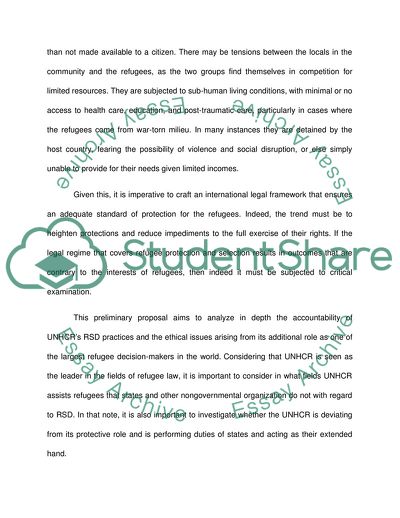Cite this document
(An Assessment on the UN High Commission on Refugees and Its Capacity Research Proposal, n.d.)
An Assessment on the UN High Commission on Refugees and Its Capacity Research Proposal. https://studentshare.org/social-science/1779472-skills-and-methods-in-historical-and-social-science-research
An Assessment on the UN High Commission on Refugees and Its Capacity Research Proposal. https://studentshare.org/social-science/1779472-skills-and-methods-in-historical-and-social-science-research
(An Assessment on the UN High Commission on Refugees and Its Capacity Research Proposal)
An Assessment on the UN High Commission on Refugees and Its Capacity Research Proposal. https://studentshare.org/social-science/1779472-skills-and-methods-in-historical-and-social-science-research.
An Assessment on the UN High Commission on Refugees and Its Capacity Research Proposal. https://studentshare.org/social-science/1779472-skills-and-methods-in-historical-and-social-science-research.
“An Assessment on the UN High Commission on Refugees and Its Capacity Research Proposal”. https://studentshare.org/social-science/1779472-skills-and-methods-in-historical-and-social-science-research.


